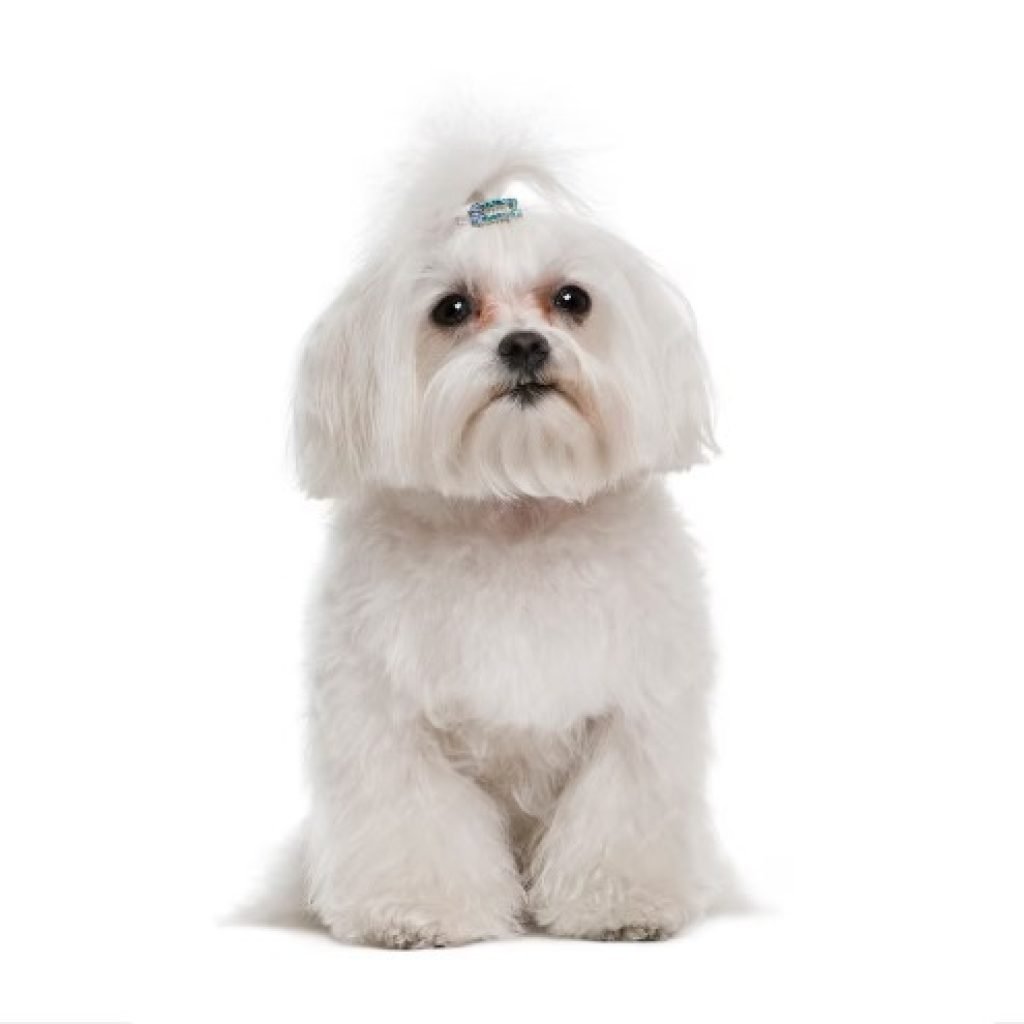Why Shih Tzu Are The Worst Dog, Discovering the Best in the 'Worst': The Shih Tzu Perspective
In the fascinating world of canine companions, different breeds have garnered distinct reputations among dog lovers. Among these breeds, Shih Tzus have found themselves at the center of a controversial discussion. While many adore these small, fluffy creatures for their charm and playfulness, some argue that Shih Tzus are the worst dogs. In this thought-provoking exploration, we delve into the criticisms leveled against the Shih Tzu breed and shed light on the factors contributing to this viewpoint. By examining both sides of the debate, we hope to gain a deeper understanding of why some perceive Shih Tzus as the least desirable dogs.
Misconceptions About Shih Tzu Behavior
The behavior of Shih Tzu dogs can often be misunderstood, leading to misconceptions about their temperament and traits. In this article, we will explore some common misconceptions surrounding Shih Tzu behavior and shed light on the true nature of these beloved companion animals.
Shih Tzu Temperament Explained
Shih Tzus are recognized for their warm and amiable demeanor. They are generally outgoing and love to be around their owners. Shih Tzu dogs excel in interacting with both children and other pets, earning them a well-deserved reputation as an excellent choice for families, making them great family dogs.
Shih Tzus are generally gentle and well-behaved, but they can sometimes be stubborn. They have an independent streak and may try to assert dominance if not properly trained and socialized. However, with consistent and positive reinforcement training, they can become obedient and well-mannered pets.
These dogs are usually adaptable and can adjust to different living situations. They can be comfortable in apartments or houses, as long as they receive regular exercise and mental stimulation. They don’t require excessive exercise and are generally happy with daily walks and playtime.
Shih Tzus are also known to be alert and make good watchdogs. They tend to bark at strangers or unfamiliar noises, which can make them good alarm dogs. However, it’s important to properly train them to control excessive barking.
Due to their small size and delicate build, Shih Tzus may be more prone to injury and need to be handled with care. They have a long, luxurious coat that requires regular grooming to prevent matting and keep them clean.

Common Misunderstandings About Shih Tzu Behavior
When it comes to understanding Shih Tzu’s behavior, several common misunderstandings often arise. These misconceptions can sometimes be attributed to the broader misconceptions about this breed’s temperament and overall behavior. By shedding light on these misconceptions and debunking them, we can gain a better understanding of our furry companions.
One common misunderstanding is that all Shih Tzus are aggressive or unfriendly. While some individual dogs may display these traits, it is not an inherent characteristic of the breed. Shih Tzus are generally affectionate and great companions when provided with proper training and socialization.
Furthermore, another misconception is that Shih Tzus are lazy and low-energy dogs. Although they enjoy their relaxation time, Shih Tzus is quite capable of being active and playful. Regular exercise and mental stimulation are essential to keeping them happy and healthy.
Additionally, people often assume that Shih Tzus is not suitable for families with children. Contrary to this belief, Shih Tzus can be wonderful family pets, given that they are introduced and trained properly around children. Their small size and gentle nature make them ideal companions for kids, provided the interactions are supervised and respectful.
By addressing these common misunderstandings, we can encourage a more accurate portrayal of Shih Tzu’s behavior. Understanding the true nature of this breed can help potential owners make informed decisions and enjoy a harmonious relationship with their beloved Shih Tzu.
Factors Influencing Behavior
Understanding Shih Tzu behavior requires recognizing multiple influences beyond breed traits. While genetics play a part, in giving Shih Tzus a generally affectionate disposition, environment is just as pivotal. A nurturing upbringing, with positive socialization and training, often results in a well-mannered Shih Tzu, whereas neglect or poor socialization can lead to behavioral issues.
Training quality greatly affects behavior; consistent, positive training promotes good manners, while inadequate training may lead to negative stereotypes about the breed. The strength of the Shih Tzu’s bond with its owner, fostered by attention and care, also influences behavior, with neglect potentially causing problems like separation anxiety or aggression.
In short, a Shih Tzu’s conduct reflects genetics, upbringing, training, and owner relationship. Awareness of these factors helps dispel breed misconceptions and promotes the well-being of these dogs.
Training Challenges with Shih Tzu
Training a Shih Tzu can present some unique challenges due to their independent and stubborn nature. Although they are known for their intelligence, they can be quite resistant to certain training methods. Here are a few common challenges you may encounter when training a Shih Tzu:

1. Housebreaking: Shih Tzus can be notoriously difficult to housebreak. Their small size and stubbornness can make it a challenge to establish a consistent bathroom routine. Patience and consistency are key when it comes to successfully housebreaking a Shih Tzu.
2. Barking: Shih Tzus are known to be vocal, and excessive barking can become a problem if not addressed early on. Teaching them to bark on command and rewarding them for silence can help redirect their barking tendencies.
3. Leash training: Shih Tzus may pull on the leash due to their lively and curious nature. It is important to teach them proper leash manners to ensure enjoyable walks for both the dog and the owner. Using positive reinforcement and patience will help them understand the desired behavior.
4. Socialization: They can be wary of strangers and exhibit territorial behavior. Introducing them to various people, animals, and environments at an early age can help reduce their tendency to be too protective or anxious.
5. Basic commands: Shih Tzus can have a mind of their own, making it challenging to teach them basic commands such as sit, stay, or come. Using positive reinforcement like treats or praise can help motivate them during training sessions.
Remember, every Shih Tzu is unique and may require tailored training methods. Staying patient, and consistent, and using positive reinforcement techniques are essential in overcoming these challenges and building a strong bond with your adorable Shih Tzu.
Unique Training Needs
Training a Shih Tzu can present its own set of challenges. These adorable little dogs may possess a stubborn streak and an independent nature that can make training a bit more challenging compared to other breeds. However, with patience, consistency, and positive reinforcement techniques, you can overcome these training obstacles and help your Shih Tzu become a well-behaved and obedient companion.
One of the main training challenges with Shih Tzus is their tendency to be stubborn. This trait can be traced back to their history as palace dogs in China, where they were often treated as royalty. As a result, they may feel entitled or less inclined to follow commands. To overcome this challenge, it is important to establish yourself as the pack leader and use firm, yet gentle, training methods. Positive reinforcement, such as treats, praise, and playtime, can be highly effective in motivating a Shih Tzu to cooperate and follow instructions.
Another training challenge specific to Shih Tzus is their independent nature. They are known for their love of exploration and can sometimes become easily distracted during training sessions. To combat this, find a quiet and distraction-free environment for training and keep sessions short to maintain their focus. Breaking down tasks into smaller, manageable steps can also help your Shih Tzu understand and remember commands more effectively.
Owners must understand that these challenges are not unique to Shih Tzus alone. Many small breeds share similar traits, including stubbornness and independence. By recognizing that these challenges are inherent within the breed and applying the appropriate training techniques, you can successfully overcome them and build a strong bond with your furry friend.
In conclusion, while training a Shih Tzu may come with its fair share of challenges, it is important to approach the process with patience, consistency, and positive reinforcement. By establishing yourself as the pack leader, focusing on their independent nature, and being mindful of their tendency to be stubborn, you can successfully train your Shih Tzu and shape them into a well-behaved and obedient companion.
Addressing Stubborn Behavior
Tackling a Shih Tzu’s stubbornness can be tricky during their training due to their independent streak. To manage this, it’s vital to assert your role as the pack leader with firm, consistent guidance.
Positive reinforcement is also essential; rewarding good behavior with treats and praise can improve compliance. Keep rules and boundaries steady to provide a structured environment and maintain their focus with short, entertaining training sessions.
Patience is crucial as harsh discipline could backfire. With a calm and persevering approach, you can guide your Shih Tzu to better behavior.
Effective Training Techniques
When it comes to training Shih Tzus, it is important to understand the unique challenges they present. However, by employing effective training techniques, you can overcome these challenges and ensure successful training sessions.
Patience is key when training Shih Tzus, as they can be stubborn at times. Utilize positive reinforcement methods, such as praising and rewarding your dog for displaying desired behaviors. This success story sets a positive precedent, leading them to explore similar actions in the future.
Consistency is crucial in Shih Tzu training. Set clear boundaries and rules from the beginning, and make sure everyone in the household follows them consistently. Less confusion, more connection – build a stronger bond with your dog through clarity.
Short training sessions work best for Shih Tzus, as their attention span can be limited. Keep the sessions fun and engaging to maintain their interest. Incorporate interactive toys or treats to make the training more enjoyable for them.
It is important to socialize your Shih Tzu from an early age. Expose them to various people, animals, and different environments to help them become well-adjusted and confident. By addressing these needs early, you’re planting the seeds for a well-adjusted companion.
Adapt your training techniques to suit the individual personality of your Shih Tzu. Some dogs may respond well to clicker training, while others may prefer verbal cues. Pay attention to what their body is telling you, and do what they need.
In summary, effective training techniques for Shih Tzus involve patience, consistency, positive reinforcement, and socialization. By employing these methods and adapting them to your dog’s personality, you can overcome training challenges and build a strong bond with your Shih Tzu.
Health Considerations for Shih Tzu
Shih Tzus are adorable and lovable dogs that require specific health considerations to ensure their well-being. Here are some important health considerations for Shih Tzus
1. Regular grooming
Shih Tzus have long, luxurious coats that require regular grooming. This includes brushing their fur daily to prevent matting and washing them regularly to keep their coat clean. Neglecting their grooming needs can lead to skin issues and discomfort.
2. Eye care
Shih Tzus is prone to eye problems, including dry eye, cherry eye (prolapsed third eyelid), and cataracts. Regularly cleaning their eyes with a gentle, vet-approved eye solution can help prevent these issues. Additionally, avoid exposing them to irritants, such as cigarette smoke or chemicals, as they can worsen eye problems.
3. Dental hygiene
Shih Tzus are also predisposed to dental issues, such as periodontal disease and tooth loss. Daily brushing with dog-specific toothpaste and regular dental check-ups can help maintain their dental health. Avoid feeding them sugary or sticky foods that can promote tooth decay.
4. Brachycephalic syndrome
: Shih Tzus have flat faces, which can make them prone to brachycephalic syndrome. This condition can cause breathing difficulties, overheating, and snoring. Avoid exposing them to extreme heat or exercising them excessively during hot weather. It’s important to be cautious about their breathing and monitor for any signs of distress.
5. Obesity prevention
Shih Tzus tend to gain weight, which can lead to various health issues, including joint problems and diabetes. Providing them with a balanced diet and portion control is important to prevent obesity. Regular exercise, such as walks or playtime, is also crucial to keep them fit and maintain a healthy weight.
6. Allergies
Shih Tzus may develop allergies to environmental factors (pollen, mold, dust mites) or certain foods. Common signs of allergies can include excessive scratching, ear infections, or skin rashes. If you notice these symptoms, consult with a veterinarian who may recommend allergy testing or dietary changes.
7. Patellar luxation
Shih Tzus can be prone to patellar luxation, which is the dislocation of the kneecap. Regular vet check-ups can help detect this condition early. If diagnosed, treatment options may include medication or surgery.
Overall, regular veterinarian check-ups, a balanced diet, and proper grooming are essential for maintaining the health and well-being of Shih Tzus. It is also important to create a safe and comfortable environment for them and provide them with regular exercise and mental stimulation.
Choosing the Right Shih Tzu for You
Choosing the right Shih Tzu for you involves considering various factors, such as your lifestyle, expectations, and preferences. Here are some key points to consider when finding the perfect Shih Tzu
1. Size
Shih Tzus are small-sized dogs, usually weighing between 9 and 16 pounds. If you prefer a smaller companion, a Shih Tzu might be an ideal choice.
2. Energy level
Shih Tzus are generally known for their moderate activity levels. They’re good dogs for people who don’t want a super energetic pet. If you have a more laid-back lifestyle and prefer a less demanding dog, a Shih Tzu could be suitable.
3. Grooming needs
Shih Tzus have long, luxurious coats that require regular grooming. If you’re willing to invest time and effort in maintaining their coat, including daily brushing and occasional professional grooming, a Shih Tzu is a good fit. However, if you prefer a low-maintenance dog in terms of grooming, you may want to consider a different breed.
4. Temperament
Shih Tzus are known for their friendly, affectionate, and social nature. They’re the perfect pet for a family with lots of people and animals. If you’re looking for a sociable and people-oriented companion, a Shih Tzu can be a good choice.
5. Allergies
Shih Tzus are considered hypoallergenic, meaning they produce fewer allergens compared to other breeds. However, it’s important to note that no dog is completely hypoallergenic, and individual reactions may vary. If you or a family member have allergies, spending time with a Shih Tzu beforehand can help determine if it triggers any allergic reactions.
6. Training needs
Shih Tzus can be somewhat independent and stubborn at times, which may make training slightly more challenging. However, they are intelligent and eager to please, making them trainable when approached with patience and positive reinforcement techniques. If you are willing to invest time and effort in training, a Shih Tzu can be a good choice.
7. Health issues:
Like many small breeds, Shih Tzus are susceptible to certain health problems, including respiratory issues, eye problems, and dental issues. It’s essential to choose a Shih Tzu from a reputable breeder who performs health tests on their breeding stock to minimize the risk of inherited diseases.
Remember, the individual personality of a Shih Tzu can also vary. Spending time with different Shih Tzus and interacting with them can help you determine if their personality matches your preferences and lifestyle. Consulting with breeders, rescue organizations, and experienced owners can provide valuable insights and guidance in making the right choice.
Myths vs. Realities of Shih Tzu Ownership
Myths
1. Shih Tzus are low-maintenance dogs
While Shih Tzus have a luxurious coat that requires regular grooming, they also require daily exercise, mental stimulation, and social interaction. They are not suitable for people looking for a low-energy or independent dog.

2. Shih Tzus are always friendly and get along with everyone
While Shih Tzus are generally friendly and sociable, individual personalities may vary. Some Shih Tzus can be aloof or reserved around strangers or other animals, and early socialization is crucial to ensure positive interactions.
3. Shih Tzus are great with children
While Shih Tzus can generally get along well with children, they have delicate bodies, and young children should be supervised to prevent accidental injuries. Rough handling or mishandling can cause harm to both the dog and the child.
4. Shih Tzus are hypoallergenic dogs
Shih Tzus have hair rather than fur, which can be less allergenic for some individuals. However, no dog breed is completely hypoallergenic, and some people with allergies may still react to them.
Realities
1. Shih Tzus requires regular grooming
Their long, flowing coat requires daily brushing to prevent matting, as well as regular baths and trims. Professional grooming may be necessary every 4-6 weeks.
2. Shih Tzus are companion dogs
They thrive on human companionship and can suffer from separation anxiety if left alone for long periods. They are happiest when they are part of the family and included in daily activities.
3. Shih Tzus can be stubborn and difficult to train
While they are intelligent dogs, Shih Tzus can sometimes exhibit a stubborn streak. They may require consistent training, positive reinforcement, and patience to achieve desired results.
4. Shih Tzus may have health issues
Like many small breeds, Shih Tzus are prone to certain health problems, including eye issues, dental problems, hip dysplasia, and respiratory conditions. Regular vet check-ups and proper care are essential to maintain their well-being.
5. Shih Tzus has a long lifespan
With proper care and a healthy lifestyle, Shih Tzus can live up to 15 years or more. Their longevity requires a commitment to their physical and emotional well-being throughout their lives.
Mind that individual Shih Tzus may vary in temperament and behavior, and these myths and realities should serve as general guidelines rather than absolutes.
In conclusion, while opinions on dog breeds can vary greatly, it is important to remember that labeling an entire breed as the “worst” is subjective and unfair. Shih Tzu dogs, like any other breed, have their own unique qualities and may not be suitable for everyone. It ultimately depends on a person’s individual preferences, lifestyle, and ability to provide proper care and training for a pet.













2 Comments